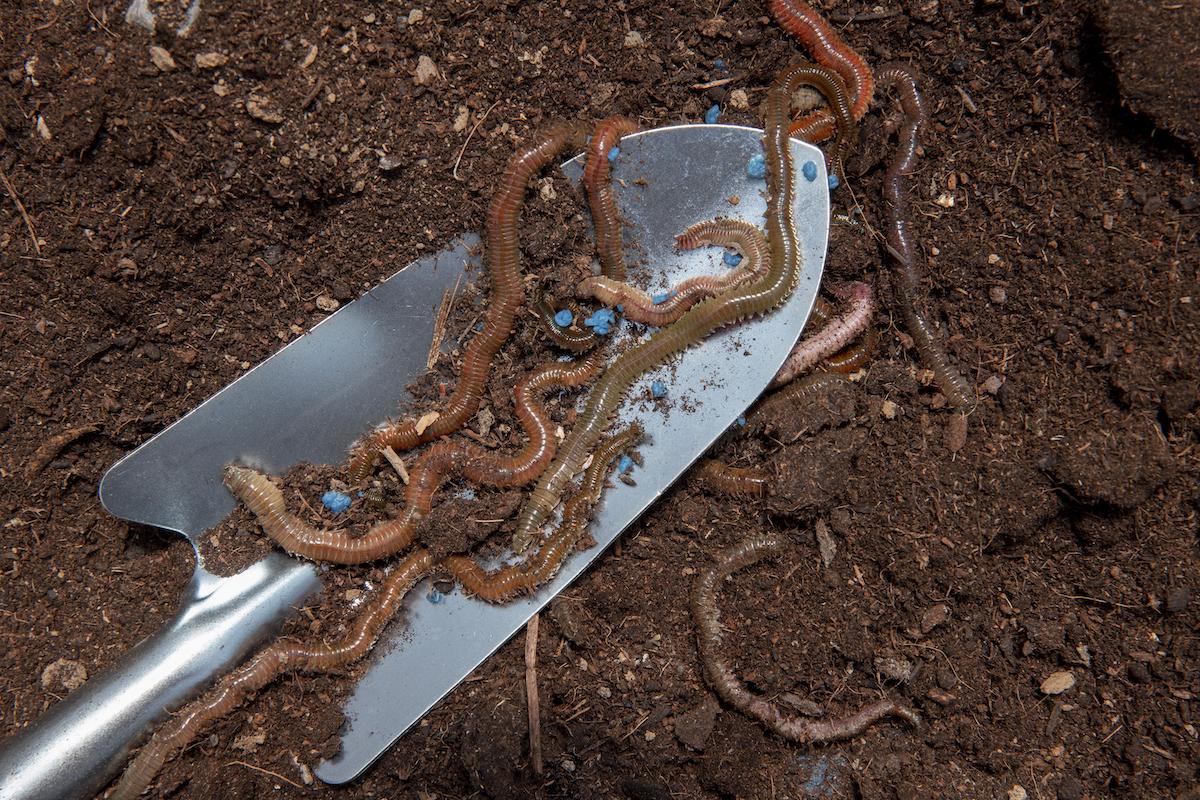Many farms, especially dairy farms, struggle with how to dispose of polluted wastewater. The hundreds of millions of gallons of water farms use gets contaminated with animal waste, artificial fertilizers, and harmful chemicals, which frequently percolate down to the groundwater that people could one day drink.
Some regenerative ag operations are finding a nifty solution to this problem. They are discovering that earthworms, those ubiquitous dirt-eaters, are also able to clean water. They have long been known as nature’s way of enriching soil, but only recently has it been found that they can also cleanse wastewater.
BioFiltro, an international company, has installed more than 200 of their three-stage wastewater treatment systems. The first chamber contains wood chips, earthworms, and microbes. The second level filters the water through crushed rock, and finally the cleaned water is collected in a drainage basin. A dairy farm in Washington State pumps half a million gallons of manure and chemical-laden water through a BioFiltro vermifiltration unit each day. The worms devour all the manure and harmful chemicals while aerating the water and wood chips. The aeration by the worms prevents the chip layer from clogging and becoming anaerobic. The density of worms is around 12,000-18,000 per cubic yard. The dairy reuses this treated water 10 times.
Sign up for Indy Today to receive fresh news from Independent.com, in your inbox, every morning.
Vermifiltrated water is highly nutritive, pathogen-free, and scrubbed of chemicals, qualifying it for use on crop fields. The key to this low-cost, efficient, and odor-free process is the earthworm. These workers live, on average, six years, have numerous offspring, and each one produces about 10 pounds of castings per year, a nutritious and valuable soil amendment. This vermicompost can produce an additional income stream for farmers or can be used on their own crops.
Traditional wastewater treatment is energy-intensive and generates around 5 percent of all greenhouse-gas emissions (GHG). In comparison, vermifiltration requires almost no electricity, thereby reducing GHG emissions by 91 percent. Astoundingly, earthworms remove more than 80 percent of nitrites in wastewater and reduce methane emissions by an even higher percentage.
Vermifiltration was recently approved to become a component of the California Department of Food and Agriculture’s Alternative Manure Management Program — a program that provides funding to farmers who install sustainable GHG-reducing systems.
Water is becoming an increasingly valuable and scarce resource. Climate change and droughts are further taxing the planet’s limited supplies of fresh water; 85 percent of fresh water is used in global agriculture. Vermifiltration offers great hope for cleaning, reusing and stretching our supply of water. It has even proven to be effective in treating industrial and municipal wastewater. Some scientists believe it to be one of the most promising efforts to stem the global water crisis.
Support the Santa Barbara Independent through a long-term or a single contribution.




